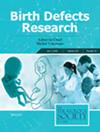Cabergoline Use and Pregnancy Outcomes: A Systematic Review
Abstract
Introduction
Lack of available expert guidelines leads clinicians to interrupt cabergoline treatment upon confirmation of pregnancy and consider switching to bromocriptine, which is more commonly used during pregnancy but is poorly tolerated.
Objective
The objective of this review was to evaluate pregnancy outcomes, primarily major malformations and spontaneous abortions, after pregnancy exposure to cabergoline during the first trimester compared to pregnancy exposure to other comparators or no treatment.
Methods
An Embase, Pubmed, Google Scholar, and ClinicalTrials.gov search was performed. Full articles published before October 27, 2022, and evaluating the effect of cabergoline on major malformations and spontaneous abortions were considered for inclusion in the review. Search results were manually screened and selected by two independent reviewers.
Results
Totally, 2186 records were identified. After removal of duplicates and screening of abstracts, 65 full-text articles were consulted. Thirty articles corresponded to our selection criteria and were included in the systematic review. This review identified 1662 pregnancies exposed to cabergoline. Most studies did not find an increased risk of congenital malformations or spontaneous abortions with cabergoline compared to other comparators or no treatment. Overall study quality was low, and there was high heterogeneity between studies.
Conclusion
This review revealed no negative impact on major malformations and spontaneous abortions of cabergoline use in pregnancy compared to other comparators or no treatment. However, additional high-quality studies are needed to further study the safety of cabergoline use during pregnancy.
Trial Registration: PROSPERO, CRD42021256219 (October 19, 2021)


 求助内容:
求助内容: 应助结果提醒方式:
应助结果提醒方式:


